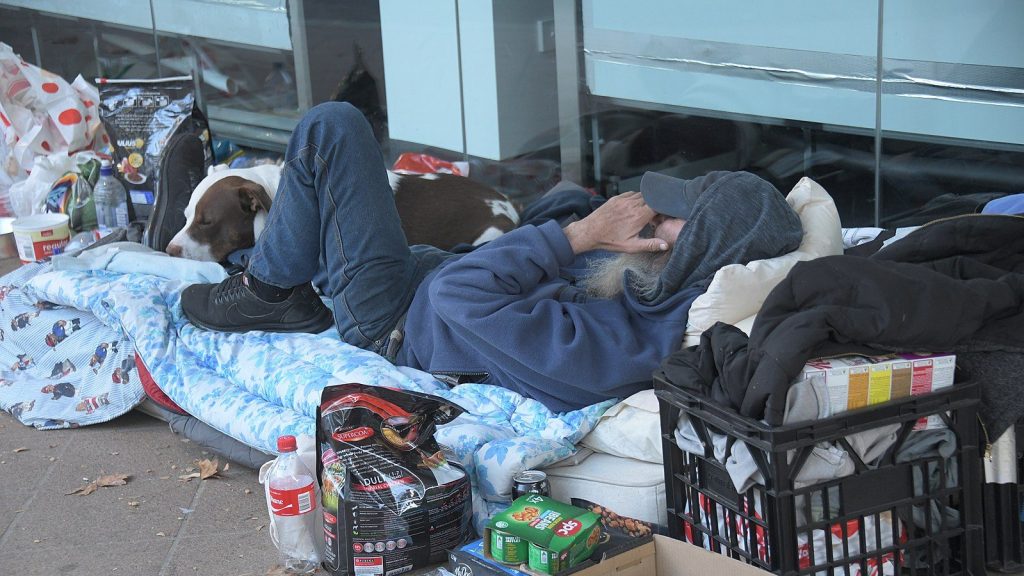Created Equal: Research suggests belief that people in poverty have ‘thick skin’
Cary Junior II September 5, 2024Psychology professor Nathan Cheek joined the show to help unpack the “thick skin bias,” where it comes from, and why this assumption is the wrong one.

A homeless person sleeps on the sidewalk with a dog at his side.
One might believe that people perceive individuals who live in poverty as in greater need of help when faced with hardship compared to more affluent people, but research indicates the opposite is true.
Subscribe to Created Equal on Apple Podcasts, Spotify, Google Podcasts, NPR.org or wherever you get your podcasts.
The “thick skin bias” is a belief that individuals who live in poverty are more resilient than affluent people when facing a challenging situation. The assumption could, as a result, influence the degree of support those who are struggling receive from others.
Today on Created Equal, the team continued Wednesday’s conversation about a Wayne County judge who singled out a student for falling asleep in court during a field trip, and how society perceives and responds to people in poverty.
Psychology professor Nathan Cheek joined the discussion to help unpack the “thick skin bias,” where it comes from, and why this assumption is the wrong one.
“We are deeply uncomfortable with injustice and inequality, and we have deep motivation to believe in a just world. A world that is fair where people get what they deserve and deserve what they get, and so it’s really threatening to us when people confront inequalities.” he said. “So one of the strategies that people adopt to get through life is adopting beliefs that justify inequality.”
Guest:
- Nathan Cheek is an assistant professor of Psychology at the University of Maryland, College Park.
Listen to Created Equal with host Stephen Henderson weekdays from 9-10 a.m. ET on 101.9 WDET and streaming on-demand.
Trusted, accurate, up-to-date.
WDET strives to make our journalism accessible to everyone. As a public media institution, we maintain our journalistic integrity through independent support from readers like you. If you value WDET as your source of news, music and conversation, please make a gift today.
Author
-
Cary Junior II is an audio journalist and producer for The Metro on 101.9 WDET. Cary has worked as a producer or host on a number of projects. His work includes short and longform audio, documentary series and daily radio. In his five year career in journalism he has worked for Crooked Media, the Detroit Free Press, and now WDET - Detroit's NPR station.
